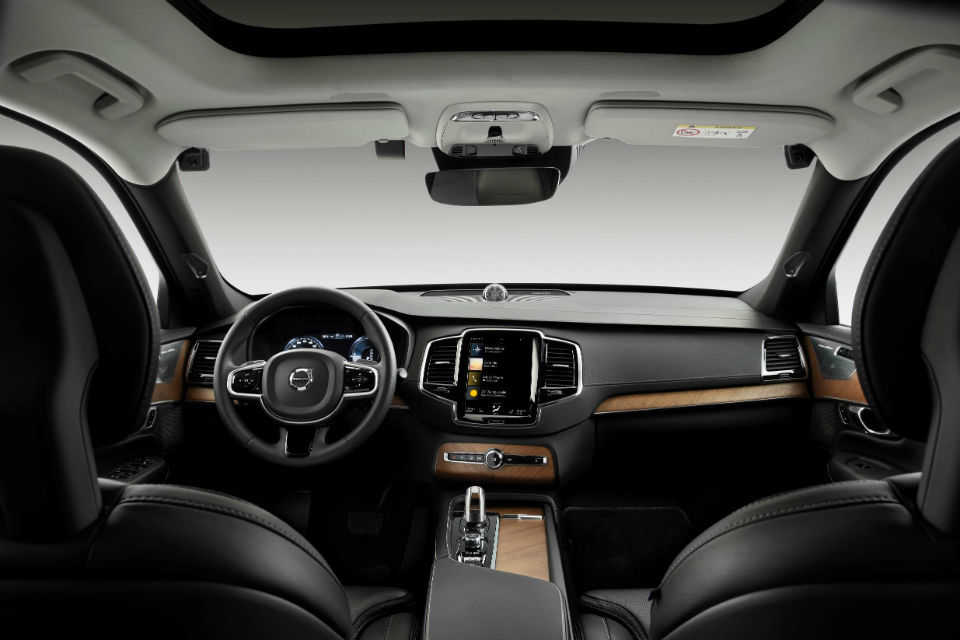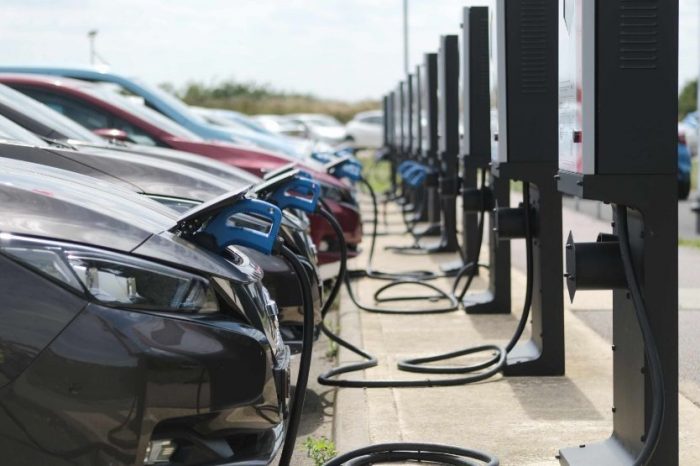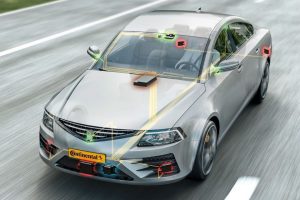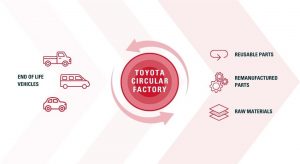The automotive industry at the tipping-point: sustainable, intelligent, and user-centric mobility at a cost

Analysis by Mazars consultants
We often hear about major changes in the automotive industry, whether we are talking about electric or conventional vehicles, about what types of software will be built into our cars, or how much confidence will we have in the self-drive functions. Recently, such changes can be observed throughout the industry, but will this change our behaviour related to cars and mobility in the coming years?
So far, in the last year and a half, we can agree that many laws and regulations have had a major impact on the changes that we have witnessed within consumer behaviour. With us having the possibility of working online, we have also discovered our need and satisfaction of living away from the urban areas, and according to numerous studies in the field, it is estimated that about 10% of European cities will lose around one-quarter of their population, who will prefer to move to rural areas. This will lead manufacturers to build comfortable cars, with the market demand for them growing day by day.
We are witnessing an eco-wakening. Consumers want sustainability… if they can afford it
Countless manufacturers and governments have invested in hydrogen technology, which has seen a rise in recent years, with many hydrogen-powered cars being driven more and more often in different parts of the world. Regarding automobiles, we have many options in front of us, but what is very clear is the process of continuous stimulation of the use of environmentally friendly vehicles by the local authorities and environmental institutions. The automotive industry is an important source of income for many Romanians, but the health crisis has disrupted important work areas.
The climatic consequences of the global disasters have affected the local economy and brought substantial losses in various industries. Currently, there is a constant concern for environmental protection through the purchase of electric vehicles. The government involvement in facilitating these purchases is at the top of our consumers’ preferences.
„The concept of sustainability is already globally extended, with all the automotive manufacturers trying to bring an improvement to the environment, by reducing carbon dioxide emissions. In Romania, we have two big automotive players, who are already making steps towards a sustainable future. Ford estimates that by mid-2026, 100% of its passenger vehicle range in Europe will be zero-emissions capable, all-electric or plug-in hybrid, and by 2030 all their vehicles will be electric. At the same time, Dacia also comes with an important update and launches the „Kilometrul Bine” platform, that emphasises the idea of corporate social responsibility.”, mentioned Ella Chilea, Audit Partner, Mazars Romania.
There is a clear interest in sustainability in this area, but the cost of an electric car is higher than the cost of a conventional one, a factor that strongly influences consumers’ decisions.
Given the above context, the Romanian government has come to the aid of consumers by implementing a program that helps them buy new cars in exchange for their old ones and, at the same time, this program aims to reduce gas emissions in transports, by promoting non-polluting road transport vehicles.
New car registrations in Romania increased by 4.3% in the first nine months of this year, compared to the similar period in 2020, and electric, plug-in hybrid, and full hybrid cars reached a market share of 12% in the first nine months of this year, 1.8 times higher than the one they had in the same period last year (6.4%), reveals data from the Directorate of Driving Permits and Vehicle Registration (DRPCIV), processed by the Association of Automobile Manufacturers and Importers (APIA).
We can see a slow but visible growth in the Romanians’ consumer preferences regarding electric vehicles; this is also due to the fact that, nowadays, young people are more concerned about climate change and are getting involved in different initiatives to gain awareness around this topic.
Local studies show that one in eight cars registered in the first three months of 2021 is electric. Cars that pollute very little or not at all are becoming more and more popular among our drivers. Statistics show that electric and full hybrid cars had an increase of 65% compared to the same period of last year. At the same time, manufacturers expect Romanians’ interest in cars that pollute very little or not at all to maintain their growth trend, with the opening of Rabla programs for electric vehicles and hybrid plug-ins.
Currently, Romania has not produced any type of electric vehicle. The French manufacturer, Renault, has already presented Dacia Spring, a car with 100% electric propulsion built in China by Dongfeng-Nissan, although Dacia is a Romanian brand. The first electric vehicle produced in Romania could be a light Ford van that will be launched in a few years. Recently, Ford produced the first full hybrid car in Romania – Puma.
The global crisis of electronic components caused by the COVID-19 pandemic is also reflected in domestic production
The global crisis of electronic components is deepening in the local automotive sector, with Dacia and Ford producing in September 2021 only half of what would have been produced in a normal month – with just over 29,000 cars, according to ACAROM data – being strongly influenced by the flow of components.
„Currently, the automotive industry is significantly impacted by a shortage of electronic components because of the COVID-19 crisis. Supply disruption and significant delays in the delivery of new cars have been detrimental to sales, and the lack of availability at showrooms forces many consumers to look for used cars or simply delay their purchase. Under normal circumstances, consumers can expect to wait many months for a new Maserati, but now they face the same delay for regular models.”, mentioned Marius Pirpiliu, Manager, Audit & Assurance.
Despite these difficulties, we believe that this industry must be constantly developing and reinventing itself. The COVID-19 pandemic can also be seen as an opportunity in the automotive industry. The need for people to travel individually and their concern for the environment and climate change will lead to major changes, along with the purchase of electric vehicles.
New carrots, new sticks: Romania is still struggling to create an optimal electrical charging infrastructure
Nowadays, policy interventions are a greater driver of change than consumer preferences. The Romanian Ministry of Environment encourages the purchase of electric vehicles or plug-in hybrids and grants €9,500 for the first category and €4,200 for the second one – this being the highest subsidy in the European Union for this kind of program. Although Romania wishes to have more green vehicles on the roads, the country does not have yet an optimal electrical charging infrastructure.
The European Automobile Manufacturers Association (ACEA) shows that 70% of all charging stations in Europe would be located in the Netherlands, France, and Germany, representing „a real performance if we consider that they represent only 23% of the total area of the European Union – meaning that 30% of the stations would be located on the remaining 77% of the European territory”.
The Romanian citizens still have to travel 200km or more to find a charger. In this respect, we cannot expect them to be willing to buy an electric vehicle. Based on an analysis performed by Lektri.co, the local market has 782 public charging locations for electric vehicles, most of them in counties with high economic power, such as București-Ilfov, Timiș, or Cluj. Between August 2020 and April 2021, the number of public charging stations for electric vehicles nationwide increased by 44%, from 542 to 782.
According to the National Recovery and Resilience Plan (PNRR), the Romanian government wishes to finance a charging station in each city of Romania. Even if the government has made progress in subsidising the electric vehicles, they also need to add a range of costs benefits that electric vehicles drivers should enjoy, including no road tax, reduced tolls and parking costs, and exemption from the VAT on car sales, as the Norwegian government granted its electric vehicles drivers.
It seems that widespread consumer concern about climate and sustainability issues has created a large pool of consumers who would prefer to shift to more sustainable ways to travel, but only if costs fall and convenience grows. „As the costs of batteries and other key electric vehicles components fall, consumers are likely to become ever more important for, and interested in, the transition to sustainability.” says Richard Karmel, Managing Partner, Mazars.
Road safety, data protection and sustainability are among the expectations of Europeans when it comes to self-driving vehicles
The automobile industry is a technological world leader and Europe’s number one investor in R&D. Automated driving is transforming the role of the automobile. It will not only enhance safety and comfort but also provide us with more free time which was previously spent driving. The concept of self-driving vehicles greatly influences the concept of smart cities and connected infrastructure, and as a result, may aid road safety and ensure the comfort of participants in road traffic.
According to a survey conducted with the support of the EU-funded PAsCAL project (whose name is an acronym for “Enhance driver behavior and Public Acceptance of Connected and Autonomous vehicLes”), Europeans’ expectations of the development of the autonomous car industry have been largely positive in terms of sustainability and safety, but negative when it comes to privacy.
More than 49% of respondents across all countries expect an optimisation on safety with the introduction of autonomous vehicles, while 28% or more from France, Germany, and the UK believe it will worsen it. In terms of sustainability, 48-57% of participants from all countries expect an improvement, while 22% expect a worsening of the situation. Very few participants in all four countries expect data privacy to improve.
According to the Romanian authorities, there is an intention to build a circuit for testing self-driving vehicles. Romania is a market where at least 3 automotive manufacturers work with Romanian teams on autonomous car concepts (Bosch in Cluj and Continental and Porsche in Timișoara).



















